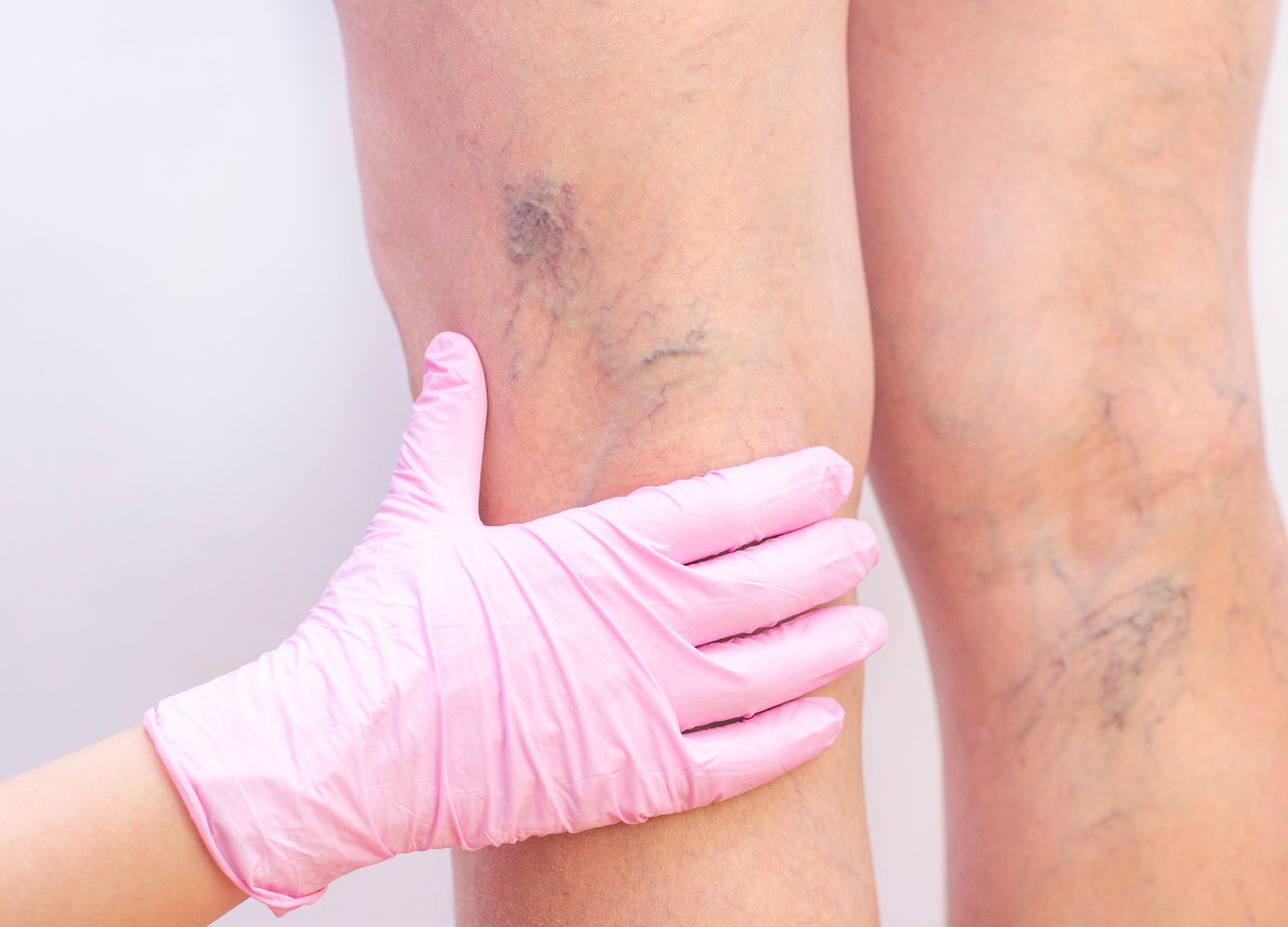Dr Edward Seaton
Consultant Dermatologist
Specialist expertise: General Dermatology, Dermatology, Mohs Micrographic Surgery, Skin Cancer, Rosacea, Acne, Laser Therapy.
Thread veins are damaged blood vessels that appear under the surface of the skin, often as a result of hormonal changes or injury.

Thread veins, often called spider veins, are damaged small blood vessels that are visible just below the surface of the skin. They are very common, affecting more than 50% of women, and become even more common after age 80.
Thread veins are typically harmless to health and are mostly a cosmetic issue – their appearance can make those who have them feel self-conscious. In very rare cases, they can be an early sign of a vein condition called chronic venous insufficiency (CVI). So, if you have thread veins, it’s important to have them checked by a dermatologist.
Thread veins can form anywhere on the body but are most common on the legs and face. They’re usually red, blue, or purple in colour and appear in clusters that resemble tree branches or spider webs, hence their other common name.
Thread veins rarely cause symptoms, but in very few cases, they can cause cramping, burning, itching or painful or tired legs. This is rare, and more often than not, these symptoms are linked to the presence of varicose veins (larger damaged blood vessels).
Thread veins aren’t actually veins, but very small blood vessels called capillaries, venules and arterioles that connect with larger blood vessels throughout your circulatory system.
A number of things can cause thread veins, or increase your risk of developing them, including:
Hormonal changes, the hormonal birth control pill, HRT or being pregnant
Genetic syndromes or connective tissue diseases
Injury or trauma
Sitting or standing for long periods
A family history of thread veins or varicose veins
Having a BMI over 30
Sun exposure
Smoking
A diagnosis of thread veins can be made by a OneWelbeck dermatologist. They will perform a physical examination to assess your skin and will also ask about your medical and family history.
Once a diagnosis is confirmed, they will talk you through your options if you would like to move forward with treatment.
Treatments available for thread veins include sclerotherapy:
Sclerotherapy is a minimally invasive treatment where a chemical solution is injected into the thread vein to close it off. The vein should disappear between three to six weeks after treatments, but you may need to have several treatment sessions to achieve the results you’re looking for.
Your OneWelbeck dermatologist will be able to advise as to which treatment is most appropriate for you so that you have the best possible outcome.
Currently selected day
Available consultations
By having a complete and integrated team of sub-specialty experts under one roof we ensure that patients are seen by the right consultant at every appointment. Our skin health specialists cover a wide range of dermatological conditions, and our dedicated allergy specialists are recognised leaders in their field.